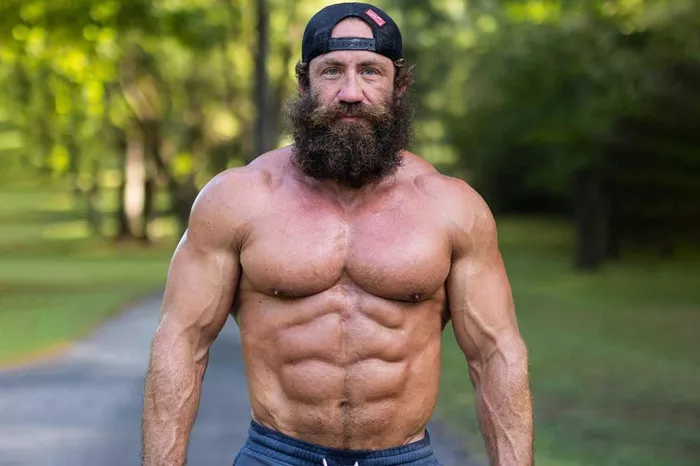A new Netflix documentary, Untold: The Liver King, explores more than just the downfall of a fitness influencer. It reveals how social media platforms are helping to spread a harsh and narrow vision of masculinity built on pain, control, and public performance.
Brian Johnson, known online as the Liver King, gained fame for his shirtless videos, extreme workouts, and raw organ meat diet. He claimed to live by “ancestral” values and preached discipline and masculinity. But behind the scenes, he was using steroids—despite branding himself as “natural.”
The documentary shows how his fame was no accident. It reflects a larger trend: the internet rewards extreme behavior, especially when it fits a certain image of masculinity.
The Rise of Performance Masculinity
Social media sites like TikTok, Instagram, and YouTube are flooded with what some now call “discipline content.” These posts feature men pushing their physical limits while promoting toughness and pain as signs of worth. Pain is no longer just part of training—it’s part of the brand.
This type of content often includes military-style language. Phrases like “stay hard” and “go to war in the gym” are common. Fitness creators showcase punishing workouts not just for results, but for views.
One study of male fitness YouTubers found they built their image through visible muscle and ties to fitness brands. Many display their physiques or personal records to prove their strength and discipline. Often, they promote extreme leanness as a symbol of moral character, even if achieving it damages their health.
The message is clear: suffering equals value.
Extreme Fitness as Social Proof
A growing number of young men now train not for health, but to beat personal records or outperform others. According to Strava’s 2023 Year in Sport report, Gen Z athletes are 31% less likely to work out for health compared to older generations. Instead, they focus on performance.
That same report highlights the growing trend of extreme endurance activities. Uploads of gravel bike rides rose 55%, trail runs increased 16%, and ultramarathon workouts went up 9% in one year.
High-profile figures like Nedd Brockmann have helped fuel this trend. In 2022, he ran across Australia. In 2023, he ran 1,600 kilometres in ten days to raise funds for charity—sharing every painful step online.
Countless others follow suit. They record intense routines, push their bodies to the limit, and post the results. Their suffering becomes proof of their commitment. Their pain becomes their pitch.
Why the Algorithms Push Pain
Social media algorithms are part of the problem. Research shows these platforms boost posts that are intense, emotional, or provocative. Extreme fitness content checks all those boxes.
Such posts often include motivational language, personal struggles, and dramatic visuals. This content is built to go viral. The more extreme the message, the more likely it is to be promoted.
Influencers benefit from this system. They gain followers, brand deals, and income. Many also sell supplements, training plans, or merchandise. To stay relevant, they push harder—and post more.
But this cycle has serious risks. It can lead to physical injury, mental burnout, hormone damage, or worse. And the pressure to perform affects not just creators, but their followers too.
A Public Health Issue
This trend is more than just a social media fad—it’s a public health concern.
Young men are being shown a narrow path to masculinity. They are taught that strength means silence, suffering, and discipline above all else. If they’re not in pain, they’re not trying hard enough.
Experts call this idea “pseudo-stoicism.” It promotes emotional suppression and punishing routines as signs of virtue. But it offers no space for balance, recovery, or genuine well-being.
The platforms play a role in this harm. They promote the most extreme content for engagement. And in doing so, they shape what audiences see as masculine or successful.
What Needs to Change
Public health agencies must take this issue seriously. Influencers like the Liver King are not just individuals—they are products of a system that profits from spectacle and insecurity.
Banning this content is not the answer. Instead, society needs to challenge its dominance and provide healthier alternatives.
One example is the Tomorrow Man project, which creates offline spaces where young men can build real relationships and explore different ideas of manhood.
Another example is the Movember campaign’s podcast Dad in Progress, which shares honest stories about fatherhood and emotional growth.
At the same time, tech companies must be held accountable for promoting harmful content. Algorithms should be reviewed and adjusted to avoid pushing users toward unhealthy extremes.
Without new narratives, many young men will be left with only one model of masculinity: one that equates value with pain.

